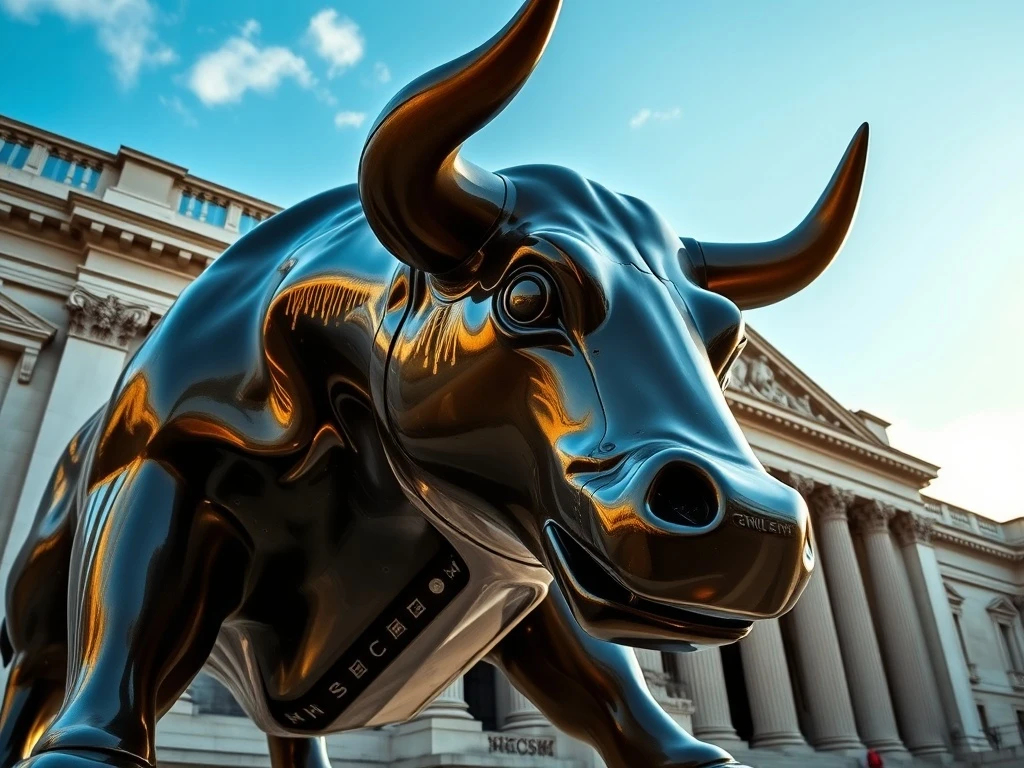UK Crypto Regulation Paves Way for KR1’s Historic London Stock Exchange Listing

The United Kingdom’s financial landscape is undergoing a significant transformation. Indeed, a major shift in the nation’s approach to digital assets is underway. This evolving environment directly impacts how crypto firms operate. Notably, UK crypto regulation is now attracting key players to mainstream financial markets. This signals a new era for digital finance within the country. Investors and industry watchers alike are paying close attention. This development marks a pivotal moment for the UK’s financial future.
KR1’s Pioneering London Stock Exchange Crypto Listing
KR1, a prominent crypto staking company, is making a groundbreaking move. The firm, based on the Isle of Man, plans to transfer its listing. It will move from the small-cap Aquis exchange to the main market of the London Stock Exchange (LSE). This KR1 listing is expected to conclude next month. Co-founder Keld Van Schreven views this as a “starter gun” for this emerging asset class. He anticipates more crypto firms will follow suit. This development clearly integrates London Stock Exchange crypto into traditional finance. Therefore, it sets a new precedent for the industry. KR1 boasts a market capitalization of around 56 million British pounds, approximately $75 million. Van Schreven states it is the “first authentic digital asset company” to list on the LSE. This distinguishes it from entities primarily holding cryptocurrencies like Bitcoin (BTC).
From Early-Stage Investments to Staking Dominance
Founded in 2014, KR1 has a rich history in the blockchain space. Initially, it invested in early-stage blockchain projects. The company has since evolved its strategy. It now focuses heavily on earning revenue through crypto staking. This involves assets such as Ether (ETH) and Polkadot (DOT). The firm has completed over 100 digital asset investments. According to Van Schreven, KR1 is “doubling down on staking.” This strategy underscores their confidence in the long-term viability of proof-of-stake networks. Furthermore, it highlights their commitment to this revenue model. Staking offers a way to secure blockchain networks. In return, participants earn rewards. This method is becoming increasingly popular. It provides a passive income stream for digital asset holders.
UK Crypto Regulation Embraces Digital Asset Adoption
The planned uplisting by KR1 coincides with a broader shift. The UK’s Financial Conduct Authority (FCA) is adopting a more receptive stance toward crypto. This change in UK crypto regulation is a welcome development for the industry. The regulator recently permitted crypto exchange-traded products (ETPs) to trade on the LSE. This decision opens new avenues for institutional investment. Additionally, the FCA plans to implement a comprehensive digital asset framework next year. These actions signal a clear commitment to fostering digital asset adoption. They also aim to integrate crypto into the mainstream financial system. This proactive approach by regulators builds confidence among investors and businesses. Consequently, it creates a more stable operating environment for crypto firms.
Bank of England Reconsiders Stablecoin Holdings
In a related move, the Bank of England (BoE) is also reconsidering its position. Specifically, it is reviewing proposed caps on corporate holdings of stablecoins. The BoE now plans to allow exemptions. These exemptions are for firms requiring larger reserves of fiat-pegged assets. Initially, the BoE had proposed strict caps. These limits were £20,000 (about $27,000) for individuals. They also included £10 million (around $13 million) for companies. This reconsideration demonstrates flexibility. It acknowledges the diverse needs of businesses utilizing stablecoins. The decision reflects a pragmatic approach to digital asset adoption. It also helps to facilitate smoother institutional engagement with these digital currencies. Such policy adjustments are crucial. They support innovation while maintaining financial stability.
Global Competition and the Future of Crypto Staking in the UK
This shift in the UK’s regulatory environment is partly driven by global competition. Countries like the US are actively developing clearer rules for digital asset firms. The GENIUS Act in the US, for instance, aims to provide regulatory clarity. Therefore, the UK seeks to position itself as a leading hub. It aims to attract and retain innovative crypto businesses. The proactive stance on UK crypto regulation is a strategic move. It ensures the nation remains competitive in the global digital economy. The success of the KR1 listing on the LSE will serve as a significant case study. It will showcase the potential for other firms. This includes those focused on crypto staking and other digital asset services. The UK government recognizes the economic benefits. These benefits come from supporting a thriving crypto sector.
Contrasting Fortunes: Argo Blockchain’s LSE Departure
While KR1 celebrates its upcoming LSE listing, another crypto firm faces a different path. Argo Blockchain will delist from the LSE. This move is part of a sweeping restructuring. It hands control of the company to its largest creditor, Growler Mining. This concludes Argo’s six-year tenure. It was one of the UK’s few publicly traded crypto mining firms. Argo will maintain its Nasdaq listing. This is subject to meeting compliance requirements. A planned reverse stock split is scheduled before January 2026. This contrasting narrative highlights market dynamics. It shows the challenges and opportunities within the evolving crypto industry. Not all journeys in the digital asset space are linear. Some firms thrive, while others adapt through significant restructuring. The London Stock Exchange crypto market remains dynamic and selective.
In conclusion, the KR1 listing on the London Stock Exchange represents a watershed moment. It signals a growing maturity and acceptance of digital assets within traditional finance. The progressive changes in UK crypto regulation are clearly fostering a supportive environment. This encourages greater digital asset adoption. Furthermore, it opens new avenues for businesses like KR1, which specialize in crypto staking. The UK is actively shaping its future as a global leader in the digital economy. This historic move by KR1 is a testament to that commitment. It paves the way for a more integrated and dynamic financial ecosystem.








